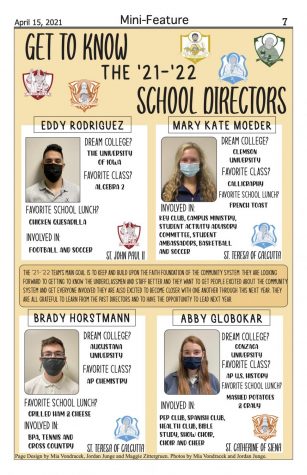COVID-19 strikes back
September 30, 2021

As UN Secretary-General Antonio Guterres once said, “We are in this together and we will get through this, together.” Hospitals in Cedar Rapids are facing increased numbers of patients, which is partially due to the increased rise of COVID-19 cases. As a result of this, on September 10, UnityPoint Health- St. Luke’s Hospital and Mercy Medical Center started preserving capacity on elective surgeries.Sarah Corizzo, St. Luke’s Hospital spokeswoman says that, in order serve the community and allow for some treatment of emergency cases, the hospital will temporarily limit non-emergent surgeries and other procedures. Non-emergent or elective surgeries are surgeries that are scheduled in advance and do not require a medical emergency, which are being limited to 10 per day. According to The Gazette, Mercy Hospital is also temporarily reducing the amount of elective procedures that require stays after surgery. “It is a day-to-day decision based on census and affects only procedures that do not need to be done within the next four to six weeks,” Mark Wehr, Mercy spokesman, said. Hospitals in Cedar Rapids have not limited procedures and surgeries since the fall of 2020, when coronavirus cases overwhelmed hospitals. Many of these announcements have come into light as the surging COVID-19 cases, especially with the Delta variant, have been on the rise. According to the U.S. Centers for Disease Control and Prevention, all 99 Iowa counties are experiencing a high rate of community transmissions. These limitations can be seen across the nation, for instance, in upstate New York. Lewis County General Hospital says they will have to pause maternity services due to staff resignations in protest to the COVID-19 vaccine. Seven employees are unwilling to take the vaccine and six more have resigned due to a mandate passed by Former New York Governor Andrew Cuomo on August 16. The hospital is currently focusing on recruiting nurses to have baby deliveries back and running. When asked about how to keep students safe in the midst of the pandemic, Jeffrey Cater, Chief Physician of the St. Luke’s Department of Emergency Medicine, gives advice on how to keep COVID-19 numbers down. “Get vaccinated first and foremost. Millions have been vaccinated thus far and the safety of the vaccines and the protections they afford are clear. Maintain good hygiene, get checked by your doctor if you feel sick even if symptoms are mild, stay home if you are sick until it is clear when you’re able to safely return to school. . .” Cater said. Some remain hopeful for the end of the global pandemic. Keep those with the coronavirus in mind during these trying times and, for more information, please check the Centers for Disease Control and Prevention (CDC).













